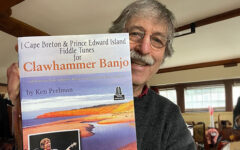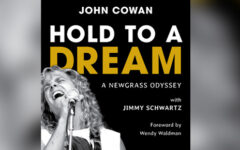 The University of Illinois Press has been busy recently with the publication, in a short of space of time, of two books that focus on the American folk music scene.
The University of Illinois Press has been busy recently with the publication, in a short of space of time, of two books that focus on the American folk music scene.
The first of these is The Never-Ending Revival: Rounder Records and the Folk Alliance by Michael F. Scully, in which the author capitalizes on the recent upsurge in interest in “roots music” and “world music.” He examines the roles of Rounder Records and the North American Folk Music and Dance Alliance, both organizations that have sought to make folk music widely available, while simultaneously respecting its defining traditions and unique community atmosphere.
In the late 1950s through the 1960s, the folk music revival pervaded the mainstream music industry, with artists such as Bob Dylan and Joan Baez singing historically or politically informed ballads based on musical forms from Appalachia and the South. Subsequently, it became commercialized and the basic thrust of this book is Scully’s examination of the ongoing controversy surrounding the profitability of folk music. He explores the lively debates about the difficulty of making commercially accessible music, honoring tradition, and remaining artistically relevant, all without “selling out.”
The author, an attorney by profession and holder of a PhD. in American Studies from the University of Texas at Austin, combines interviews of music executives and practicing folk musicians with his own personal experiences to reveal how this American subculture remains in a “never-ending revival” based on fluid definitions of folk and folk music.
Scully speaks of his intent in one concise paragraph in his introduction …
“This book does not examine every manifestation of post boom revival activity. My approach is thematic and focuses on ongoing intellectual and commercial issues common to revivalism as a whole. For the most part, I examine such issues through the vehicle of the Folk Alliance and Rounder Records. As an umbrella organisation that annually brings together roughly two thousand folk entrepreneurs of varying stripes, the Alliance is a living laboratory that illustrates the revival’s continuing concerns. Rounder, in the words of the New York Times, is ‘folk music’s big small label.’ Begun as an ‘antiprofit collective’ by three left-leaning students who romanticized the folk, it has grown into one of the world’s largest independent record companies. That growth helps illuminate commercial revivalism’s development in the postboom years, a period that encompassed the countercultural movements of the late sixties, the music industry upheavals of the 1990s, and the digital revolution of the twenty-first century.”
The Never-Ending Revival (259 pages, ISBN:0252033337) was published on April 14 and is available from the University of Illinois Press and all good book stores.
The second of the two University of Illinois Press books to which I alluded above is Sing It Pretty – Bess Lomax Hawes: A Memoir. Bess, a folklorist and musicologist herself, was daughter to John Lomax and sister to Alan Lomax. I will turn my attention to that book shortly.







